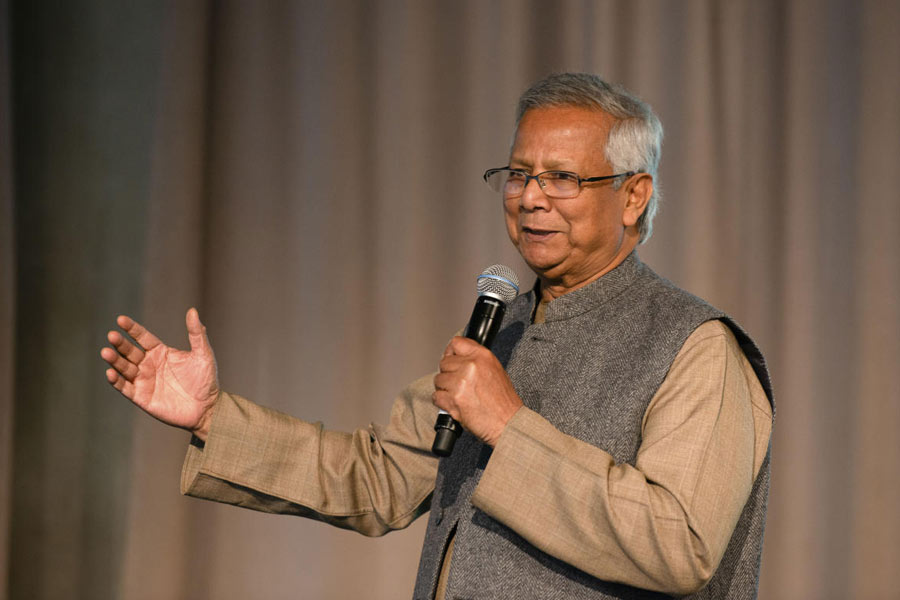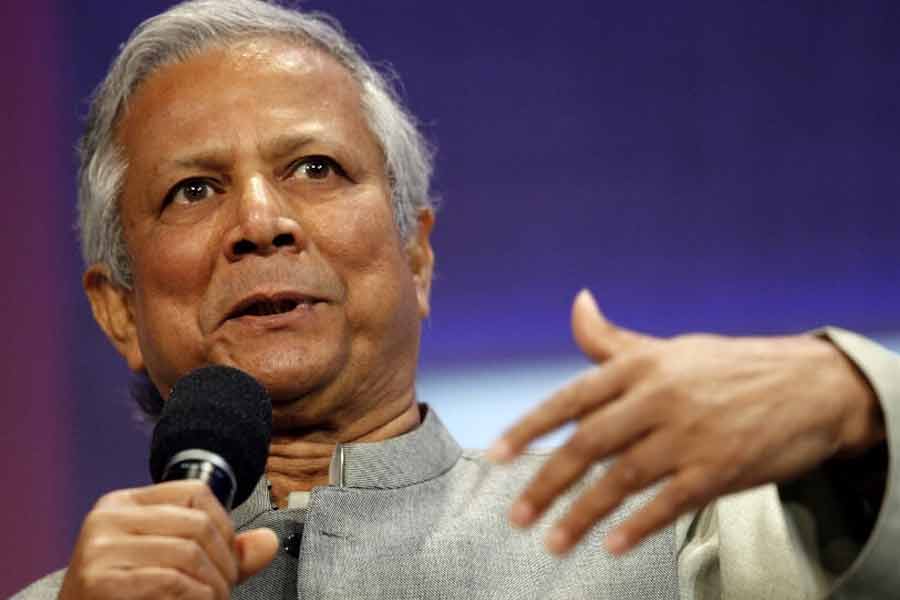The caretaker government in Bangladesh is committed to ensuring a transition to inclusive and pluralistic democracy and creating an environment in which "free, fair and participatory elections" can be held, its head Mohammad Yunus assured the international community on Saturday.
Yunus, the Chief Advisor of the interim government, said while addressing the third Voice of Global South Summit which was hosted by India in a virtual format.
"You all are aware that Bangladesh witnessed a ‘Second Revolution’ on 5th August 2024, through a mass uprising spearheaded by our valiant students and joined by the masses," the 84-year-old Nobel laureate said, referring to the political turmoil in his country and the resignation of prime minister Sheikh Hasina on August 5.
Noting that the current interim government led by him was sworn in on August 8, Yunus said, "Our government is committed to ensuring a transition to inclusive and pluralistic democracy and creating an environment in which free, fair and participatory elections can be held." Yunus assumed charge of the interim government amid ongoing violence and vandalism, including against the minorities.
"Our task is now to carry out vital reforms in our electoral system, judiciary, local government, media, economy and education," Yunus said at the summit being attended by Prime Minister Narendra Modi.
"I invite you to visit Dhaka soon. Otherwise, you may miss something important. Much of Dhaka has turned into the graffiti capital of the world. Young students and children aged as young as 12-13 have been painting the walls of this 400-year-old city with images of a New Democratic environment- friendly Bangladesh," he said.
"There is no central planning or guidance for that. No budget support from anybody. It is just an outpouring of their emotions and commitment to the goals of the Second Revolution," the noted economist said.
Former Prime Minister Hasina, 76, fled to India on August 5 after being forced to resign from her post amidst unprecedented anti-government student-led protests.
The student-led protests demanding reforms in government job quotas evolved into a government-toppling movement in early August.
Yunus further said, "We must place the youth and students, who constitute a significant portion of the Global South’s population at the heart of our strategies. Two-thirds of our population are youth. They are the most powerful segment of the society. They are different. They are committed to creating a new world. They are capable. They are technologically far ahead of the previous generation..." He also emphasised redesigning the financial system to make sure that wealth is shared by all.
"It should not be a one-way path for wealth. We must ensure financial services for all people, particularly women and youth. We can learn from each other how this can be done successfully." He also mentioned 'The Bengali language movement' in 1952.
"In 1952 the Bangladeshi students sacrificed their lives for their mother tongue. It inspired struggles for the right to speak in the mother language all over the world. Some seven decades later our students-led Second Revolution is inspiring youth throughout the global south to raise their voice for democracy, human rights, dignity, equality and shared prosperity." "I am honoured to be the oldest 'young person' to take part in this revolution and help them make their dreams come true. They need support from all of you," Yunus said.
"Being old should not mean that you have to retire, withdraw yourself from economic activities. Human creativity never stops on a date fixed by the state. It doesn’t stop until the last breath. We may work together to see how to make societies supportive of the creativity of all people as long they live," the octogenarian economist said.
During the anti-government protest in Bangladesh, over 230 people died during violence that erupted across the country following the fall of the Hasina government on August 5, taking the death toll to 560 during the three weeks of violence.
Except for the headline, this story has not been edited by The Telegraph Online staff and has been published from a syndicated feed.












